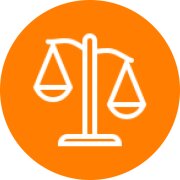Best Energy Regulatory Law Lawyers in Kota Kinabalu
Share your needs with us, get contacted by law firms.
Free. Takes 2 min.
List of the best lawyers in Kota Kinabalu, Malaysia

About Energy Regulatory Law in Kota Kinabalu, Malaysia
Energy Regulatory Law in Kota Kinabalu, Malaysia, governs the ownership, distribution, generation, and consumption of energy resources, focusing predominantly on electricity, gas, oil, and renewable energy sources. This area of law deals with the regulations set by local and national authorities to ensure safe, efficient, and sustainable energy development and usage. In Kota Kinabalu, as part of Sabah state, energy regulation also considers environmental standards and local community interests, reflecting Malaysia's broader national framework with some distinct regional elements.
Why You May Need a Lawyer
Lawyers specializing in Energy Regulatory Law can help individuals and businesses navigate the complex web of legal requirements that impact energy projects, compliance, and disputes. Common situations where you might need legal help include:
- Applying for energy production or distribution licenses
- Negotiating power purchase agreements
- Resolving disputes with local energy providers
- Ensuring compliance with environmental and safety standards
- Dealing with land use and zoning issues related to energy projects
- Advice on government incentives and tariffs for renewable energy investments
- Addressing challenges in transitioning to alternative or renewable energy sources
Local Laws Overview
In Kota Kinabalu, Energy Regulatory Law is guided by both federal and state legislation. The main federal laws include the Electricity Supply Act 1990, the Energy Commission Act 2001, and the Renewable Energy Act 2011. At the state level, Sabah Electricity Sdn Bhd (SESB) is a central player. Local laws focus on:
- Licensing and regulating electricity generation and distribution
- Setting electricity tariffs and conditions of service
- Approving and monitoring renewable energy projects
- Ensuring compliance with environmental standards
- Protecting consumer rights and safety
The Energy Commission (Suruhanjaya Tenaga) acts as the primary regulator at the national level, while local authorities manage zoning and certain enforcement aspects in Kota Kinabalu. Energy projects often require multiple permits and must adhere to both energy and environmental laws.
Frequently Asked Questions
What is considered energy under Energy Regulatory Law in Kota Kinabalu?
Energy, in this context, includes electricity, gas, oil, and renewable sources such as solar, wind, and hydroelectric power. The law governs both the production and distribution of these energy forms.
Who regulates the energy sector in Kota Kinabalu?
Regulation is overseen by the Energy Commission and Sabah Electricity Sdn Bhd, with support from local authorities for permits, zoning, and environmental compliance.
How do I get a license to produce or supply electricity?
Applications for licenses must be made to the Energy Commission and SESB, including detailed project plans, environmental impact assessments, and proof of financial and technical capability.
What penalties exist for violating energy regulations?
Penalties can include fines, suspension or revocation of licenses, and, in serious cases, criminal prosecution. Non-compliance with safety or environmental standards can also incur significant costs.
Are there any incentives for using renewable energy?
Yes, Malaysia offers the Feed-in Tariff (FiT) scheme for generating renewable energy, along with other grants and incentives for qualifying projects.
How does Energy Regulatory Law protect consumers?
Consumers are protected through regulations that mandate safe supply, fair pricing, clear billing, and mechanisms for dispute resolution.
Can disputes with energy providers be resolved legally?
Yes, legal avenues exist for dispute resolution, including consumer tribunals, negotiations, and court action where necessary. Lawyers can help navigate these processes.
What is required for environmental compliance in energy projects?
Most energy projects require an Environmental Impact Assessment and must comply with regulations designed to minimize pollution and habitat disruption.
What role do local authorities play?
Local authorities in Kota Kinabalu handle land use, building permits, and enforcement of certain regulatory measures such as zoning, which can affect energy projects.
Can foreign companies invest in the energy sector?
Yes, but they are subject to both national and state licensing, ownership restrictions, and partnership requirements. Legal advice is critical to ensure compliance.
Additional Resources
To further understand Energy Regulatory Law in Kota Kinabalu, consider consulting these organizations and resources:
- Energy Commission (Suruhanjaya Tenaga): The federal regulator for electricity and gas
- Sabah Electricity Sdn Bhd (SESB): Main electricity provider and state-level regulator
- Renewable Energy Association of Sabah: Advocacy and support for sustainable projects
- Sabah State Environmental Protection Department: Environmental compliance and impact assessments
- Ministry of Energy and Natural Resources Malaysia: Policy and program information
- Local Kota Kinabalu Bar Council chapter: Lawyer referrals and legal education resources
Next Steps
If you need legal assistance in Energy Regulatory Law in Kota Kinabalu, you should:
- Identify your specific legal needs, such as licensing, compliance, disputes, or investment advice
- Gather all relevant documents and information relating to your energy issue
- Seek a lawyer or law firm with experience in Energy Regulatory Law, ideally with local knowledge of Kota Kinabalu
- Request an initial consultation to discuss your case and legal options
- Consider contacting the Energy Commission or SESB for procedural guidance where relevant
- If cost is a concern, look for legal aid services, the Bar Council, or local legal clinics for assistance
Engaging a qualified lawyer can help ensure your rights are protected and your project or issue is in full compliance with all applicable laws.
Lawzana helps you find the best lawyers and law firms in Kota Kinabalu through a curated and pre-screened list of qualified legal professionals. Our platform offers rankings and detailed profiles of attorneys and law firms, allowing you to compare based on practice areas, including Energy Regulatory Law, experience, and client feedback.
Each profile includes a description of the firm's areas of practice, client reviews, team members and partners, year of establishment, spoken languages, office locations, contact information, social media presence, and any published articles or resources. Most firms on our platform speak English and are experienced in both local and international legal matters.
Get a quote from top-rated law firms in Kota Kinabalu, Malaysia — quickly, securely, and without unnecessary hassle.
Disclaimer:
The information provided on this page is for general informational purposes only and does not constitute legal advice. While we strive to ensure the accuracy and relevance of the content, legal information may change over time, and interpretations of the law can vary. You should always consult with a qualified legal professional for advice specific to your situation.
We disclaim all liability for actions taken or not taken based on the content of this page. If you believe any information is incorrect or outdated, please contact us, and we will review and update it where appropriate.








